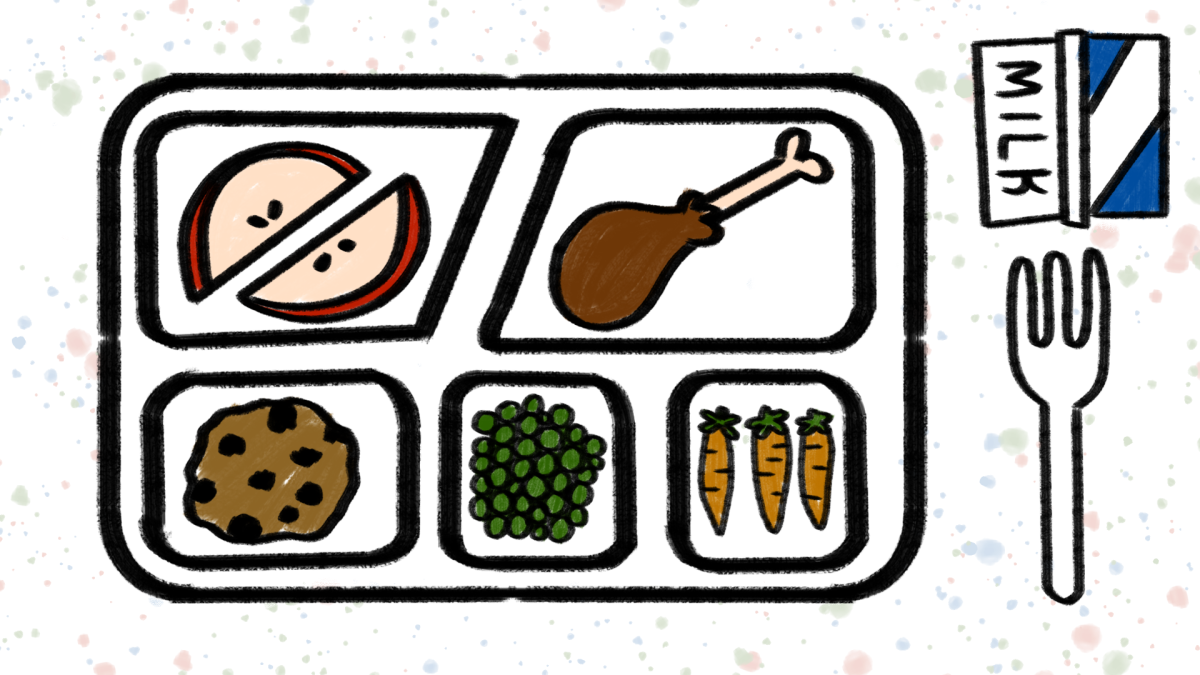The introduction and expansion of the state-funded free breakfast and lunch program under H.B. 100 is an important step toward promoting equity in education. Ensuring that all eligible students receive nutritious meals will help stop food uncertainty and bullying.
This bill addresses both immediate needs and long-term educational outcomes.
H.B. 100 will help foster a more nurturing learning environment and help the well-being of students across Utah. Providing free lunch to students in need is a necessity for empowering students to receive a better education.
Support H.B. 100
H.B. 100 is a bill sponsored by Rep. Tyler Clancy and Senate Sponsor Kirk A. Cullimore.
It expands a state-funded program to provide free breakfast and lunch to eligible students, with an emphasis on eliminating stigma.
The Utah State Board of Education (USBE) is openly backing this bill to help with food insecurity. USBE recognizes its potential to alleviate food insecurity, one of the most pressing issues in education today.
This bill not only tackles hunger but also seeks to remove the label that comes with financial hardship in schools. This is an issue that affects many students across the state of Utah.
The Power of Inclusion
Students cannot learn without food.
Eating lunch’s correlation to positive academic performance is well-documented. Children who are adequately nourished are better able to concentrate, participate in class discussions and retain information.
Kelly Orton, the Salt Lake City School district’s child nutrition director, said, “Food should be given to children universally as part of the program. If we do that, then our children, all of them, have a better chance to learn and improve 100%, so that’s the goal.”
Food insecurity can lead to increased absence, poor academic performance and behavioral problems. This all impacts a student’s long-term educational success.
Ensuring that all students have access to regular, nutritious meals can help reduce these challenges.
Orton emphasized the importance of children eating lunch and how directly correlates to improved student participation and success. Eating lunch is very important to a student socially.
Orton said, “It’s more than nutrients and getting energy. It’s a social thing. If they’re eating school lunch, then you’re eating school lunch. We found that in changing that they would bring their friends to eat school lunch too. It did increase participation dramatically.”
The Salt Lake City school district has been putting funding towards free lunch to eligible students since 2000.
H.B. 100 creates a type of inclusivity that will greatly help students’ education. It would help all Utah districts could provide free lunch to eligible students.
State Funding
Utah currently has 2.8 million dollars worth of student lunch debt in Utah. This number is alarming.
Gov. Cox recently diverted 1.2 million dollars to help with this debt. H.B. 100 could further help shrink this number. It could expand free meal programs to help with student debt rather than put a strain on state budgets and resources. The pros of providing free lunch outweigh the costs.
Orton said, “It’s not that expensive. It should not cost a lot for the state to do this, for the reduced, eliminate reduced, and anything that we can do to provide nourishing foods, nutritionally balanced food to our children is a game changer.”
The longterm benefits such as improved student performance, reduced absences and fewer social challenges can outweigh the initial financial costs.
This bill has received minimal pushback or negative connotations in the 2025 legislative session. Many Utahns see the importance of providing lunch to students and taking care of our younger generation.
This bill has the potential to help with healthcare issues such as child obesity and malnutrition.
H.B. 100 could pave the way for other initiatives aimed at reducing inequities in education, such as expanded access to mental health services and after-school programs.
Our government has a shared responsibility to care for the next generation, creating a community where every child can succeed. Ensuring students’ basic needs are met is a responsibility of society, particularly when food insecurity negatively impacts children’s ability to learn and thrive.
Orton said, “If they’re fed, they’ll do better in school. They’ll do better in life. It’s just they’re healthier mentally and physically, and sometimes we lose track of that. One of those base requirements that our children need before they can learn, is they need to feel safe, and they need to be fed.”
H.B. 100’s expansion of free meal programs is a necessary and just step toward ensuring all students have the nutritional support needed to succeed academically.
Supporting H.B. 100 is not just a policy decision — it is an investment in the future of Utah’s education.
e.thompson@dailyutahchronicle.com




